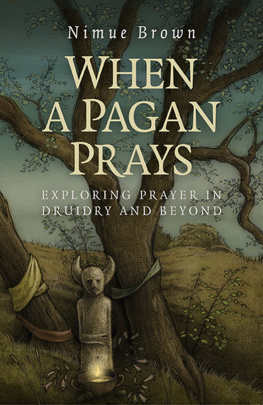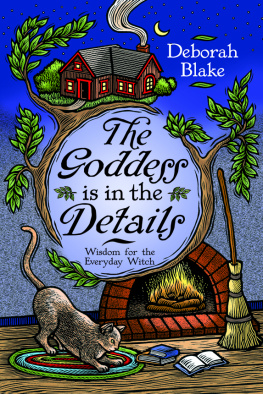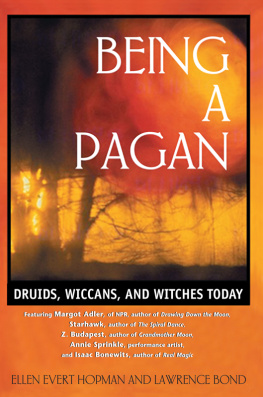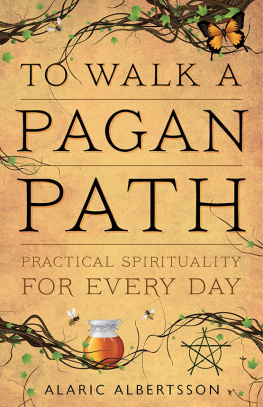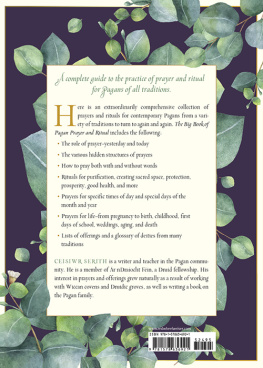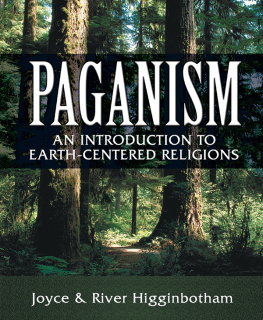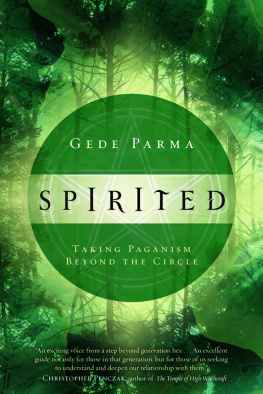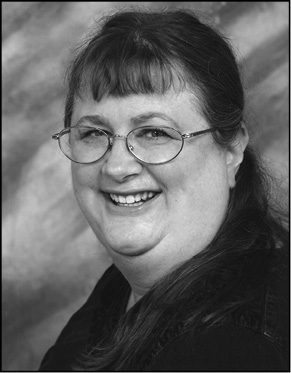
jim hogg photography
About the Author
Bronwen Forbes has lived in both big cities and small towns and has experienced the advantages and drawbacks of both. She co-founded Free Spirit Alliance and has taught at various Pagan festivals, Pride Days, and conferences across North America. She is also the author of Make Merry in Step and Song: A Seasonal Treasury of Music, Mummers Plays & Celebrations in the English Folk Tradition .
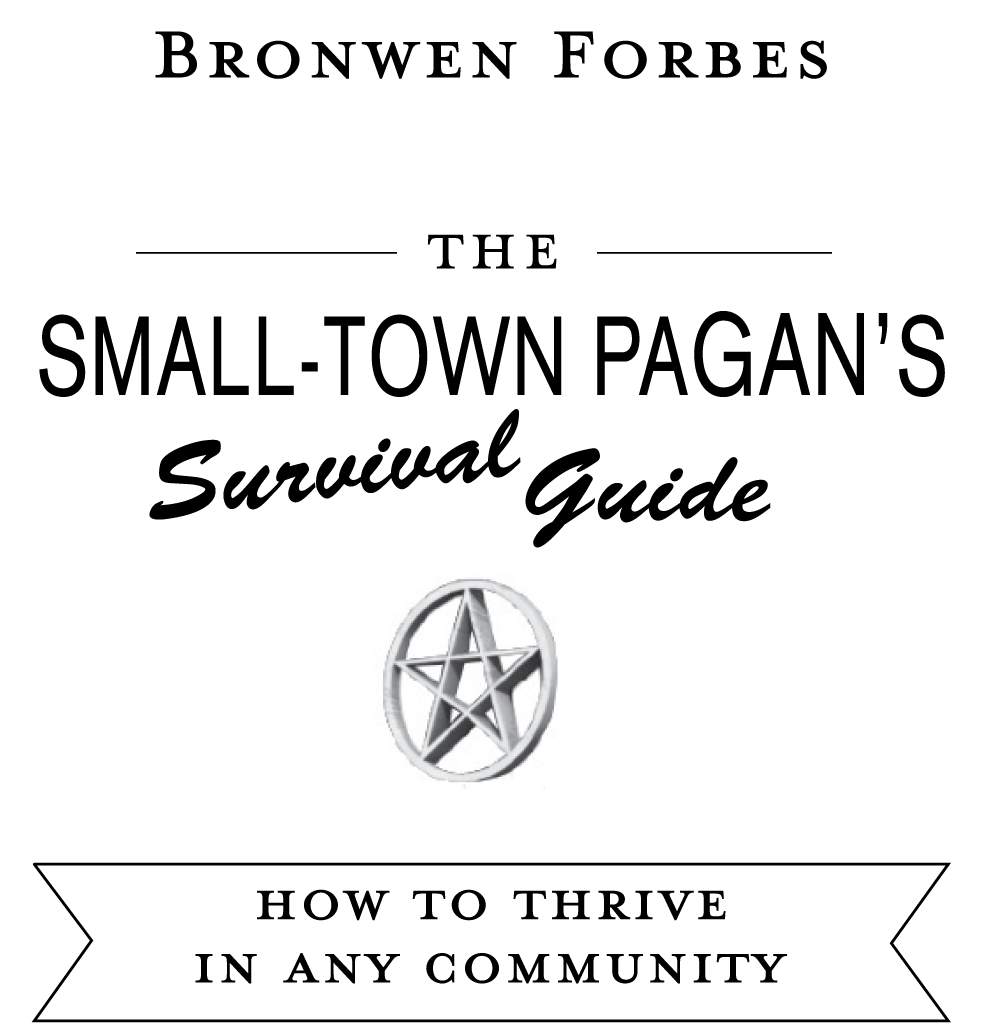

Llewellyn Publications
Woodbury, Minnesota
Copyright Information
The Small-Town Pagans Survival Guide: How to Thrive in Any Community 2011 by Bronwen Forbes.
All rights reserved. No part of this book may be used or reproduced in any matter whatsoever, including Internet usage, without written permission from Llewellyn Publications, except in the form of brief quotations embodied in critical articles and reviews.
As the purchaser of this e-book, you are granted the non-exclusive, non-transferable right to access and read the text of this ebook on screen. The text may not be otherwise reproduced, transmitted, downloaded, or recorded on any other storage device in any form or by any means.
Any unauthorized usage of the text without express written permission of the publisher is a violation of the authors copyright and is illegal and punishable by law.
First e-book edition 2011
E-book ISBN: 9780738729787
Cover art Paul Oglesby/AA Reps, Inc.
Cover design by Lisa Novak
Editing by Brett Fechheimer
Interior photograph Sylvia Forbes
Llewellyn Publications is an imprint of Llewellyn Worldwide Ltd.
Llewellyn Publications does not participate in, endorse, or have any authority or responsibility concerning private business arrangements between our authors and the public.
Any Internet references contained in this work are current at publication time, but the publisher cannot guarantee that a specific reference will continue or be maintained. Please refer to the publishers website for links to current author websites.
Llewellyn Publications
Llewellyn Worldwide Ltd.
2143 Wooddale Drive
Woodbury, MN 55125
www.llewellyn.com
Manufactured in the United States of America
For
Ravenna, Spiritrunner, K, Noey, Julia, Donna Hames, Becca, Jenn, Evy, Witch of the Woods, Kathleen from North Dakota, Deanna Eberlin, Moondancer, Keltasia, Cordelia, Lisa McSherry, Ruth Merriam, Rowen Brianna, Fergus, Kim Schaufenbuel, Andrea Covey, Darren, and Iris.
You have taught me so much.
Acknowledgments
It is always true that one person does not write a book in a vacuum. In this case, I have fifty survey respondents to thank, especially the twenty-three who have agreed to let themselves be quoted in this book either in their own words as they completed my survey or as interviewees on specific topics. They are as much co-authors as they are contributors; their wisdom and experiences have taught me a great deal.
My thanks also to Elysia Gallo of Llewellyn Worldwide for once again believing in me and what I have to say. She and production editor Brett Fechheimer are truly saints for not panicking when a family medical crisis delayed my work on the final manuscript.
I have tried to be as accurate as possible when recording the population of the towns the survey respondents live in, unless the respondents did not want their town specifically mentioned. For this I have used the numbers provided by the U.S. Census Bureau for its 2009 Population Estimates Program. I apologize for any inaccuracies.
I could not have written this book without the help and support of my husband, A. G., and my daughter Rose. Not only have their own experiences as small-town Pagans been chronicled here, but theyve handled my telling of those experiences to perfect strangers with humor and grace. They were also the best traveling companions ever, for the now-famous Walmart Altar Road Trip recounted in chapter 4.
Finally, because of life and moving and finishing a bachelors degree in journalism and a few other inexcusable excuses, there was a four-year gap between the time I originally sent out the survey to interested participants and when I actually started working on the book. During that time, several of my original respondents changed or dropped the e-mail addresses they used to send me their survey responses (the only way I had to reach them). Their comments have not been included in this book, since I had no way to get their signed permission to do so. One of those lost respondents didnt have a lot to say in her survey that was overly positive or negative, but the name she asked me to use if I quoted her told me everything I needed to know. She asked me to refer to her as Silent.
On a very deep and personal level, this entire book is dedicated to all the Silents out there who were too frightened to say anything to me at all.
Bronwen Forbes
Baldwin City, Kansas
Summer 2010
Contents
Popularity Contest
Making Contact
The Well-Decorated Broom Closet
The Discount Superstore Altar
Minimum Daily Requirements
Internetworking: Finding Others of Like Mind Online
Community Building
Problems, Like Charity, Begin at Home
The Experts Speak
Introduction
Some Basic Definitions
For the purposes of this book, if you think you are a Pagan, you are.
And if you think you live in a small town, you do.
After all, the definition of a twenty-first-century American Pagan is relative. Some use the term to define anything that isnt one of the Big ThreeChristianity, Judaism, or Islam. Even within our own community, the term Pagan can encompass vastly different beliefs and practices, as illustrated by the following definition from the Pagan Pride Project:
A Pagan or Neo-Pagan is someone who self
identifies as a Pagan, and whose spiritual or religious practice or belief fits into one or more of the following categories:
Honoring, revering, or worshipping a Deity or Deities found in pre-Christian, classical, aboriginal, or tribal mythology; and/or
Practicing religion or spirituality based upon shamanism, shamanic, or magickal practices; and/or
Creating new religion based on past Pagan religions and/or futuristic views of society, community, and/or ecology;
Focusing religious or spiritual attention primarily on the Divine Feminine....
I cant tell you if youre Pagan or not. No one can. But if one of the definitions above closely describes what you do and think, or want to do or think (but may not know exactly how to yet), religiously speaking, then I think youre a Pagan.
The definition of small town is equally relative. If you grew up in New York City, then you probably think of Lubbock, Texas (population 225,859) as a small town. But if you grew up in Fayette, Ohio (population 1,281), then Lubbock is a big city to you. Likewise, I cant tell you if you live in a small town or not.
Let me give you an example: when I lived in the suburbs of Washington, DC, I knew I lived in a big city. Spiritually, my city offered three major Pagan festivals a year, a quarterly Pagan newspaper, four or five good occult shops, dozens of botanicas (supply shops for those of the Santera, Voudon, and Yoruba faiths and a source of awesomely cheap glass-enclosed pillar candles), a monthly concert/lecture series, and more covens, classes, workshops, forums, and discussion groups in more traditions than one person could join in a lifetime. Washington, DC also offered me the opportunity to wear my pentacle and other Pagan jewelry as openly as I pleased twenty-four hours a day, seven days a week. Who cares about a little silver star-in-a-circle when the Hare Krishna standing behind me at Starbucks is wearing saffron robes, has a drum tucked under his arm, and sports a shaved headexcept for one long ponytail?
Next page

